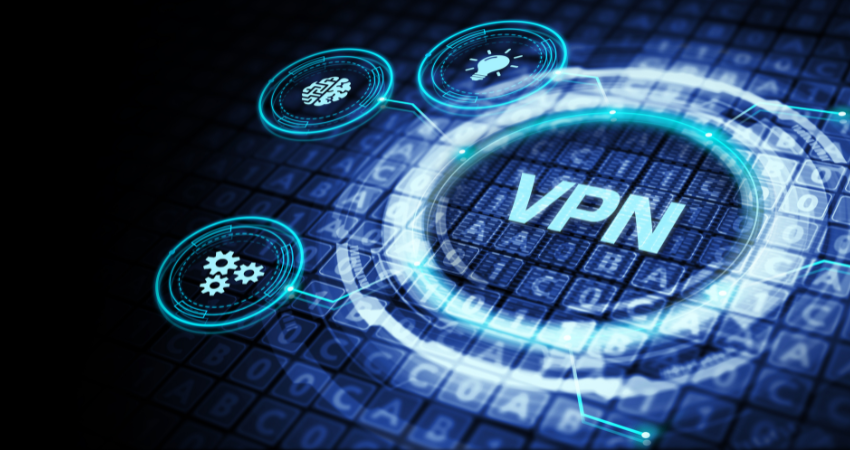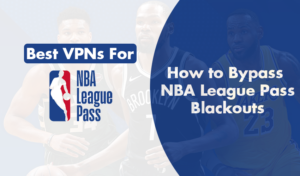If you’ve ever wondered, “are vpns safe?”, this article is for you. We will explore the ins and outs of VPN security, and answer pressing questions like “do vpns work?”, and “what is a secure vpn?”.
What is a VPN and How Does It Work?
A VPN, or Virtual Private Network, is a tool that provides online privacy and anonymity by creating a private network from a public internet connection. Think of it as a secret tunnel that lets you surf the web without being tracked.
Here’s how it works: When you connect to a VPN server, your device’s IP address, which can reveal your location and identity, is replaced with the server’s address. Your internet traffic is also encrypted, meaning it’s hidden from prying eyes, be it hackers, advertisers, or even your internet service provider.
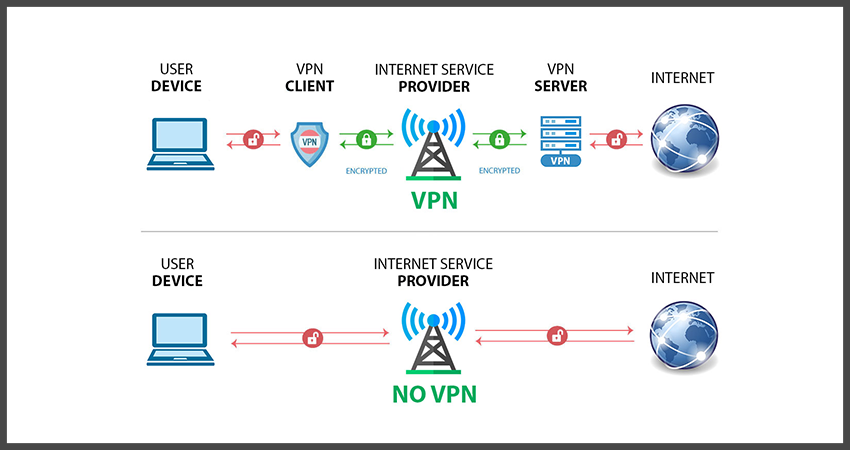
So, whether you’re checking your emails, shopping online, or streaming your favorite show, a VPN keeps your activities private and secure. In essence, it allows you to use the internet more freely and securely, ensuring your digital life is your own business.
VPNs are particularly useful when using public Wi-Fi networks, which are often less secure and more vulnerable to cyber threats. Overall, a VPN is like your personal cloaking device for the internet, offering a safer and more private online experience.
Exploring the Privacy of VPNs: Does VPN Really Protect You?
Virtual Private Networks (VPNs) are hailed as privacy protectors, offering a level of online anonymity via data encryption and IP masking. They work by creating a private network from your connection, essentially building a digital tunnel that shields your data from the prying eyes of hackers, advertisers, and Internet Service Providers.
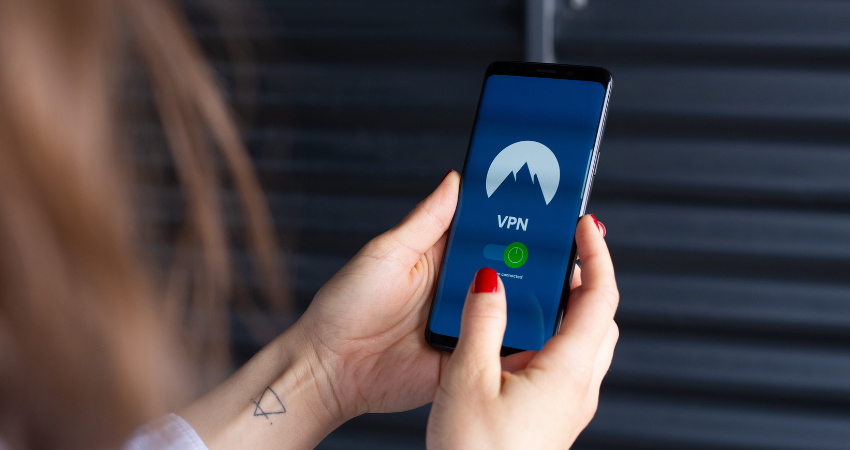
Encrypted data is unreadable without the right key, making it a robust shield against data theft. The IP masking feature further ensures privacy by replacing your IP address with the VPN server’s, effectively masking your geographical location and identity.
However, the effectiveness of a VPN largely depends on its quality and the trustworthiness of the provider. Some VPNs have been found to have security vulnerabilities, or worse, log user data themselves, thereby negating the privacy advantage.
VPNs and Public Wi-Fi
Public Wi-Fi networks, while convenient, pose significant security risks. They are often unsecured, making it easy for cybercriminals to intercept sensitive data, such as passwords or credit card information. But with a quality Virtual Private Network (VPN), you can protect your online privacy and secure your information.
A VPN creates a private network from a public internet connection, effectively encrypting your data and making it invisible to potential hackers. Your IP address is replaced with the server’s address, concealing your identity and location.
This not only shields your browsing activities from prying eyes but also enables you to bypass geographic restrictions, giving you access to content unavailable in your region.
However, remember that a VPN’s effectiveness depends on the trustworthiness of the provider. Some VPNs may have security vulnerabilities or log user data, compromising privacy. Therefore, it’s crucial to choose a reliable provider.
While using public Wi-Fi, a VPN is your best defense against cyber threats, ensuring your online activities remain private and secure. Utilizing a VPN is a simple, effective measure to enhance your internet security, particularly when accessing public Wi-Fi networks.
VPNs and ISP Tracking
A Virtual Private Network (VPN) is a crucial tool in the digital era, particularly in mitigating the risks associated with Internet Service Provider (ISP) tracking. ISPs have the capacity to monitor, collect, and even sell your internet browsing data, potentially infringing on your privacy.
VPNs, however, function as a privacy shield, thwarting ISPs’ ability to track your online activities. Upon activation, the VPN establishes a secure, encrypted tunnel between your device and the VPN server. Your internet traffic is routed through this tunnel, making it unreadable to your ISP.
The VPN also replaces your IP address with its server’s, effectively maintaining your anonymity online. This IP masking capability is not only instrumental in preventing ISP tracking but also beneficial in accessing geo-restricted content.
For instance, you can access a streaming service’s content unavailable in your region by connecting to a VPN server located in a country where the content is accessible. Thus, in today’s digital landscape where privacy is paramount, using a VPN is a prudent measure to protect your online activities.
Remember, not all VPNs are created equal; it’s essential to choose a reliable provider that upholds stringent no-logs policies and uses robust encryption protocols.
VPNs and Government Surveillance
VPNs work on the principles of encryption and tunneling, creating an encrypted conduit for data transmission that ensures the integrity and confidentiality of the transmitted information.
This encrypted tunnel is impenetrable, turning user data into an unreadable format for anyone attempting unauthorized access, including government agencies.
Furthermore, VPNs mask the user’s IP address, replacing it with the server’s IP address. This mechanism promotes anonymity, allowing users to browse the internet without leaving digital footprints that could be tracked.
Despite their robust protection, VPNs do not entirely eliminate the risk of government surveillance. Intricacies in legal frameworks can potentially permit government access to online activities.
However, using a VPN significantly reduces this risk, strengthening the protection of personal data and enhancing digital freedom.
It’s crucial to choose a reputable VPN provider with a stringent no-logs policy to ensure maximum privacy and security. In the face of rising government surveillance, VPNs present a proactive solution, empowering individuals to take control of their cyber-privacy and security.
Comparison: VPN vs. Private Browsing
Virtual Private Networks (VPNs) and private browsing, also known as incognito mode, are two popular methods of maintaining online privacy, but they serve different purposes and offer varying degrees of protection.
A VPN provides robust security by encrypting your data and masking your IP address, making your online activities unreadable to potential eavesdroppers, including government agencies.

It’s ideal for accessing geo-restricted content and safeguarding data on unsecured public Wi-Fi networks. However, VPNs can slow down your internet speed, and not all VPN providers have strict no-logs policies.
On the other hand, private browsing offers a more lightweight solution. It prevents your browser from storing your search history, cookies, and form data, thereby protecting your privacy from other users of your device.
However, it does not hide your IP address or encrypt your data, making it unsuitable for protecting against government surveillance or hackers. It’s best for confidential one-time searches or when using a public computer.
The Dangers of Free VPNs: Is VPN Good or Bad?
Free VPNs, while enticing due to their cost-effectiveness, can potentially pose significant risks to users. Their potential dangers lie primarily in data privacy and security vulnerabilities.
Free VPNs often rely on advertising revenue, which can compromise user data as they may sell your information to third parties.
Additionally, they may have weaker encryption systems, leaving users vulnerable to cyberattacks. However, this doesn’t mean all VPNs are harmful.
Paid VPNs often provide robust security measures, including strong encryption and strict no-log policies, thus safeguarding your online activities from prying eyes.
They can also provide anonymity, masking your IP address to protect your identity and location. However, potential drawbacks include reduced internet speeds and the reliability of the provider’s claims regarding data privacy.
Therefore, when deciding on using a VPN, it’s crucial to consider the balance between the level of privacy, security, and functionality you require and the potential risks associated.
Thorough research into the provider’s reputation and policies can help users make informed decisions about their online privacy and security.
Malware Risks
Free VPN services, while enticing due to their cost-effectiveness, can pose significant malware risks. The absence of a revenue model often leads these services to resort to questionable practices to generate income, such as injecting malware into users’ devices.
This malware can compromise your device’s security, leading to potential data breaches and privacy violations. The risk is magnified by the fact that VPNs have high-level access to your system, making it possible for sophisticated malware to gain root access.
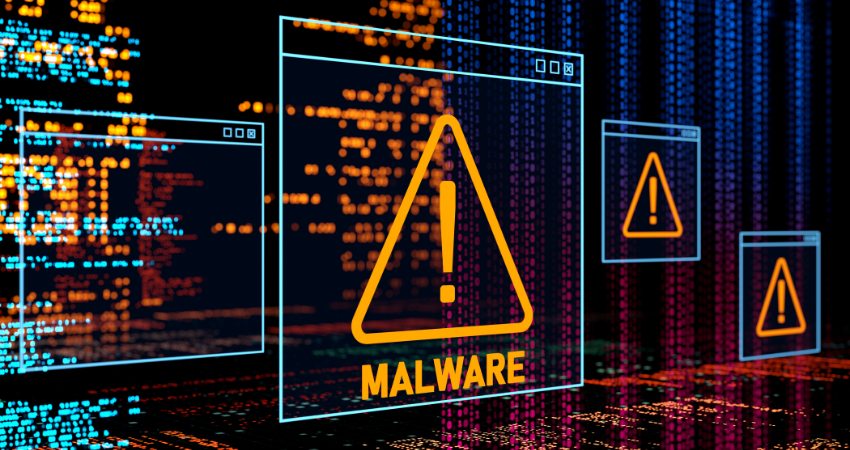
Moreover, free VPNs may lack robust security measures, increasing the likelihood of data leaks. Your sensitive information, including personal and financial data, could be exposed to cybercriminals, leading to identity theft or financial loss.
To mitigate these risks, it’s crucial to prioritize security over cost savings when choosing a VPN. Opt for a reputable, paid VPN service that guarantees strong encryption and a strict no-logs policy.
Furthermore, ensure your device is equipped with up-to-date antivirus software to detect and neutralize potential malware threats. Regularly monitor your online accounts for any unusual activity and consider using identity theft protection services.
Remember, in the realm of cybersecurity, prevention is better than cure. Making informed decisions about your VPN usage can significantly reduce your exposure to malware risks.
Tracking of Online Activity
Using a free VPN service can expose users to the risk of tracking and data collection, potentially compromising their online privacy and security. Unlike paid VPNs, many free VPNs do not enforce strict no-log policies, meaning they might log and track user activity.
Furthermore, some free VPN providers may sell this collected data to third parties, which could lead to targeted advertising, profiling, and potential data breaches.
This is a stark contrast to reputable paid VPNs that prioritize user privacy and security by implementing robust encryption technologies and strict no-log policies.
Even when using a VPN service, users are not completely anonymous. Advertisers and trackers can still identify and track users through mechanisms like web trackers, cookies, and browser fingerprintint.
This means that despite the perceived security of a VPN, your online activity and identity can still be exposed. The consequences of such tracking can range from nuisance, such as targeted ads, to more serious concerns such as identity theft and financial loss.
To ensure online privacy and security, it is vital to choose a trustworthy and reputable VPN provider. Regularly updating antivirus software and monitoring online accounts for unusual activity can also mitigate these risks.
Remember, security often comes at a cost, and it may be worth investing in a paid VPN service for enhanced protection.
Limited Data Usage
When using a free Virtual Private Network (VPN), users often face limitations in data usage, which can significantly hamper their online activities. These constraints can severely restrict internet browsing, streaming, and downloading activities due to data caps.
Free VPN services typically limit the amount of data you can use, leaving users frustrated when their VPN connection suddenly drops after reaching the limit.
This can be particularly problematic for users who consume large amounts of data for activities such as streaming movies or downloading large files.
Moreover, the limited data usage often means slower connection speeds, leading to longer load times, buffering during streaming, and extended download durations. Managing data usage effectively becomes critical when using a free VPN.
To optimize data usage, users should monitor their consumption regularly, limit high-data activities, and disconnect the VPN when it’s not necessary. Alternatively, considering a reputable paid VPN service could provide unlimited data and better connection speeds.
Hence, it’s crucial to understand and manage the restrictions of a free VPN service effectively for a seamless online experience.
Slower Internet Speed
Free VPN services, although enticing due to their zero-cost appeal, often result in slower internet speeds, and understanding the technical reasons behind this can help users make informed decisions. One primary reason is server congestion.
Free VPNs typically have a limited number of servers that are shared among a vast pool of users, resulting in traffic overload and subsequently decreased speeds. Another contributing factor is the intentional bandwidth limitation imposed by free VPN providers as a part of their business model to encourage upgrades to paid plans.
This bandwidth throttling directly impacts the speed of data transfer, causing slower browsing, increased latency, and buffering during streaming. Furthermore, the encryption process, a key component of VPN services, can be slower in free versions due to less advanced protocols, adding to the overall slowdown.
The impact on user experience can be significant, with reduced download and upload speeds hampering activities like video streaming, gaming, and large file transfers.
Therefore, while free VPNs can provide a basic level of anonymity and security, the trade-offs in terms of speed and reliability are considerable. It underscores the value of investing in premium VPN services for a faster, more reliable, and secure internet connection.
Advertisements
Advertisements are an integral part of the business model for free VPN services, serving as a primary revenue stream to offset the costs of providing free services.
However, the frequent and intrusive nature of these ads can disrupt user experience, lead to slower connection speeds, and potentially expose users to malware or phishing attempts.
Moreover, some free VPNs may partner with third-party advertisers who track users’ browsing habits to tailor ads, thereby compromising user privacy. This stands in stark contrast to paid VPNs, which often prioritize user privacy and offer ad-free experiences.

Understanding these trade-offs is essential when choosing to use a free VPN. Users need to weigh the benefits of cost-saving against potential risks to their online privacy and security.
To mitigate these risks, users can use ad-blockers to limit exposure to unwanted ads, although this may not entirely eliminate the potential for data tracking.
Alternatively, opting for a reputable paid VPN service can provide a more secure, ad-free browsing experience.
While free VPNs may seem appealing, users must remain cautious and educate themselves about the potential implications of advertisements on their privacy and security.
What Makes a VPN Secure and Safe?
A Virtual Private Network (VPN) is secure and safe due to several key factors. First and foremost, the encryption protocols play a crucial role in VPN security.
Encryption transforms data into a coded form that can only be deciphered by authorized parties, hence safeguarding data confidentiality.
For instance, a robust encryption standard like AES-256 is widely used by reputable VPNs for its superior security.
Additionally, the choice of VPN protocol is crucial. Protocols such as OpenVPN and WireGuard are highly secure compared to outdated ones like PPTP.
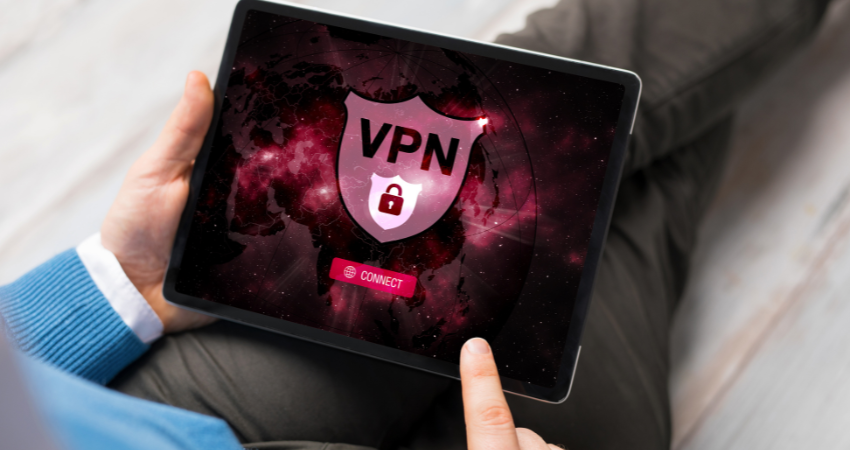
Data privacy is another critical factor, determined by the VPN’s logging policy. A no-log VPN, which doesn’t store user data, ensures that sensitive information is not susceptible to unauthorized access or potential data breaches.
Server locations also matter. VPNs with a broad range of server locations help users maintain anonymity by masking their real IP address, offering more flexibility and improved access to geo-restricted content.
Furthermore, a trustworthy VPN provider regularly updates its security measures, protecting users against the latest threats. For instance, using antivirus software in conjunction with a VPN can help to mitigate the risk of malware infections.
In real-world scenarios, this means a user can browse the internet or access public Wi-Fi networks securely, knowing their online activities are private and encrypted. Thus, understanding these factors can help users choose a reliable VPN for optimal online privacy and security.
Prevention of IP Address Leaks
Prevention of IP address leaks is a critical aspect of maintaining online privacy and security, and Virtual Private Networks (VPNs) play a pivotal role in this regard.
VPNs work by creating a secure, encrypted tunnel between your device and the internet, effectively masking your real IP address and replacing it with a new one from the VPN server you’re connected to.
This feature ensures that your online activities remain anonymous, and your location remains concealed, thwarting potential privacy breaches and DDoS attacks.
However, not all VPNs are created equal. Some may inadvertently leak your real IP address due to various reasons, such as DNS leaks or WebRTC leaks, thereby defeating their primary purpose.
Therefore, it is vital to opt for reputable VPN services that offer robust security features, including DNS leak protection and strong encryption protocols.
Additionally, these VPNs should adhere to strict no-logging policies, limiting the risk of IP address exposure even if the VPN servers are compromised. Frequent checks for IP leaks can also help in timely detection and mitigation, further enhancing your online safety.
Hence, using a high-quality VPN is a proactive step towards ensuring your digital privacy, and it’s a measure that should not be overlooked in today’s hyper-connected world.
No-log Policy
A “No-log Policy” in the context of Virtual Private Networks (VPNs) refers to a stringent privacy strategy that ensures the VPN provider does not store or record users’ online activities.
This policy is crucial in maintaining user privacy and security as it prevents the accumulation of data that could potentially be accessed by unauthorized entities, such as hackers, cybercriminals, or government surveillance programs.
VPNs that adhere to a strict no-log policy, like NordVPN, Surfshark, and ExpressVPN, provide a secure online environment by ensuring that user data, browsing history, and online activities are neither recorded nor stored.
This approach effectively safeguards sensitive information from third-party tracking, thereby enhancing user anonymity and allowing individuals to browse the internet without leaving a digital footprint.
It’s a crucial layer of protection against potential data breaches, ensuring that even if a VPN server is seized or compromised, no valuable user information can be extracted.
Thus, when prioritizing online privacy and security, it is essential to opt for a reputable VPN provider that diligently enforces a strict no-log policy.
VPN Kill Switch
A VPN Kill Switch is a crucial security feature that acts as a safety net, ensuring your online privacy and data security aren’t compromised.
It operates on a simple principle: if your VPN connection unexpectedly drops, the Kill Switch automatically disconnects your device from the internet, thereby preventing accidental exposure of your real IP address and sensitive data.
Essentially, it’s a fail-safe mechanism that shields you against potential IP leaks and threats that may arise during momentary lapses in your VPN’s performance. Kill Switches may operate differently based on the VPN provider.
For instance, some VPNs offer a system-level Kill Switch that cuts off all internet traffic, while others provide an application-level Kill Switch that only disconnects specific apps.
Despite its numerous benefits, a potential drawback could be an abrupt loss of internet connectivity, which could interrupt online activities.
However, most would agree that this brief inconvenience is a small price to pay for the enhanced security offered.
Therefore, when choosing a VPN service, it’s vital to ensure that it includes a reliable Kill Switch feature, as this adds an extra layer of protection to your online privacy and security.
Multi-factor Authentication (MFA)
Multi-factor Authentication (MFA) is a critically important feature in Virtual Private Network (VPN) applications, providing an exponentially stronger layer of security for online privacy.
MFA works by requiring users to authenticate their identity using multiple verification methods, thus substantially reducing the risk of unauthorized access, data breaches, and identity theft.
A typical MFA setup might include something you know (a password), something you have (a unique code sent to your device), and something you are (biometric data).
This amalgamation of different identification factors dramatically increases the difficulty for potential intruders to gain access, thus boosting the security levels.
The use of technologies such as biometric authentication and time-based one-time passwords (TOTP) further enhances the efficiency of MFA.
Biometric authentication, leveraging unique user attributes like fingerprints or face recognition, adds a personalized security layer, while TOTP provides a temporary and highly secure password that expires after a short duration.
The integration of MFA in VPN applications underscores its importance in the contemporary digital landscape, where cyber threats are increasingly sophisticated and pervasive.
Hence, MFA is a formidable tool in a VPN’s arsenal, fortifying the ramparts of online privacy and security.
Conclusion: So, Are VPNs Safe?
In conclusion, “how good are vpns?” depends on the VPN you choose. While VPNs significantly enhance online privacy and security, they aren’t foolproof. It’s crucial to choose a reliable VPN provider that offers strong encryption, a no-log policy, and IP leak prevention. Remember, when it comes to VPNs, it’s often a case of you get what you pay for.
So, are VPNs safe? Yes, if chosen wisely. They can provide a solid layer of protection for your online activities, but it’s essential to be mindful of their limitations and not treat them as a silver bullet for all online threats.
Remember, online security is a shared responsibility. A VPN is just one tool in your online security toolkit. It’s equally important to practice good online hygiene, such as using strong, unique passwords, enabling multi-factor authentication wherever possible, and being mindful of the data you share online.

